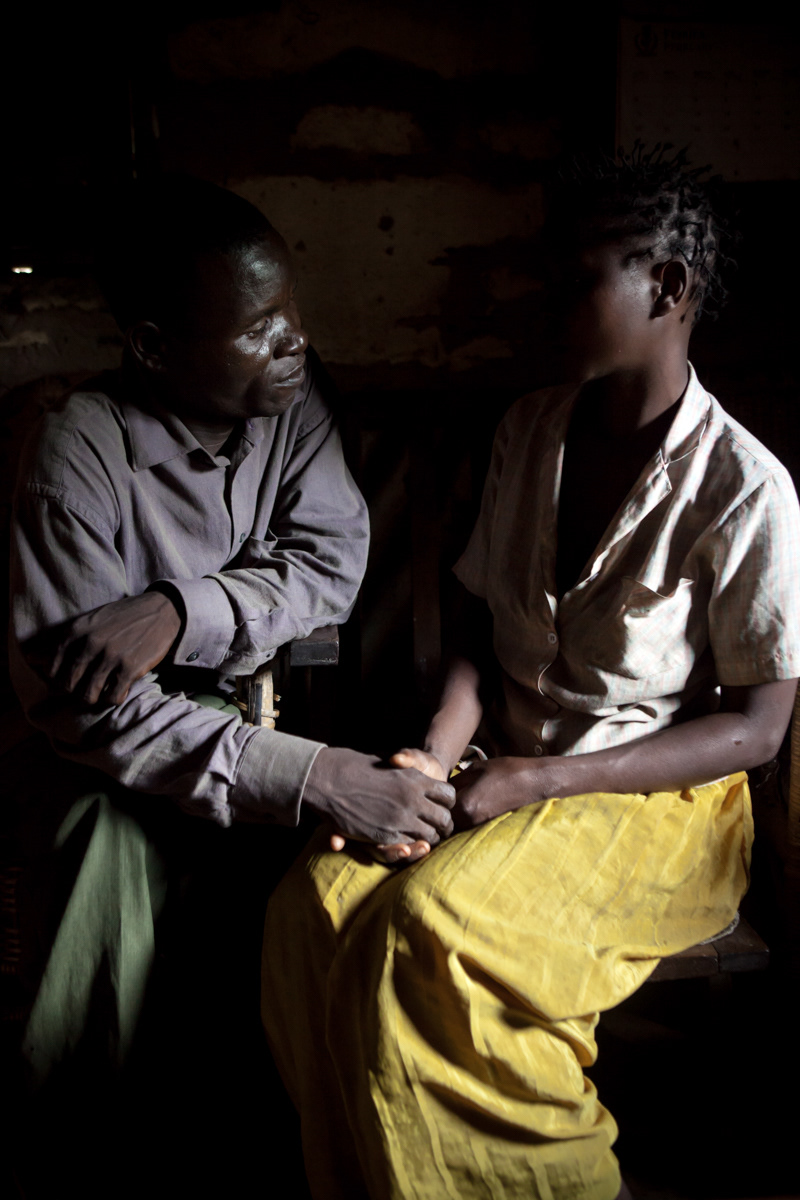RAPED LIVES
57th BOURSE DU TALENT FINALIST 2014 - AFTERMATH GRANT FINALIST 2013 - 50th BOURSE DU TALENT "COUP DE COEUR" 2012 - GETTY IMAGES CREATIVE GRANT 2011
With 48 rapes per hour according to a speculative study realized by the American Journal of Health, the Democratic Republic of Congo has long been notorious for being the " rape capital of the world ", as describe in 2010 by Margot Walström, Special Representative for the United Nations on Sexual Violence in Conflicts.
Used as a weapon of war during the conflict that has torn the eastern part of the country for about ten years, the rapes - collective in most of the cases and committed by both civilians and soldiers – have ever since ravaged the Congolese communities. The control of the abundant mining resources is chiefly what if at stakes in this conflict.
The absence of effective penalties, the disarray of the judicial system and the underreporting of the problem encourages the growth and extent of the phenonrenon. The men who carry out these sexual crimes, both civil and military, are rarely questioned, judged or arrested for their crimes. The girls and women, also victims of sexual mutilations, forced marriages and prostitution, often suffer a double penalty. Destroyed physically and psychically, considered as "dirty" and relegated, they are eventually rejected by their community.
For fear of being abandoned and because they are ignorant of their rights, many of them take refuge in silence.
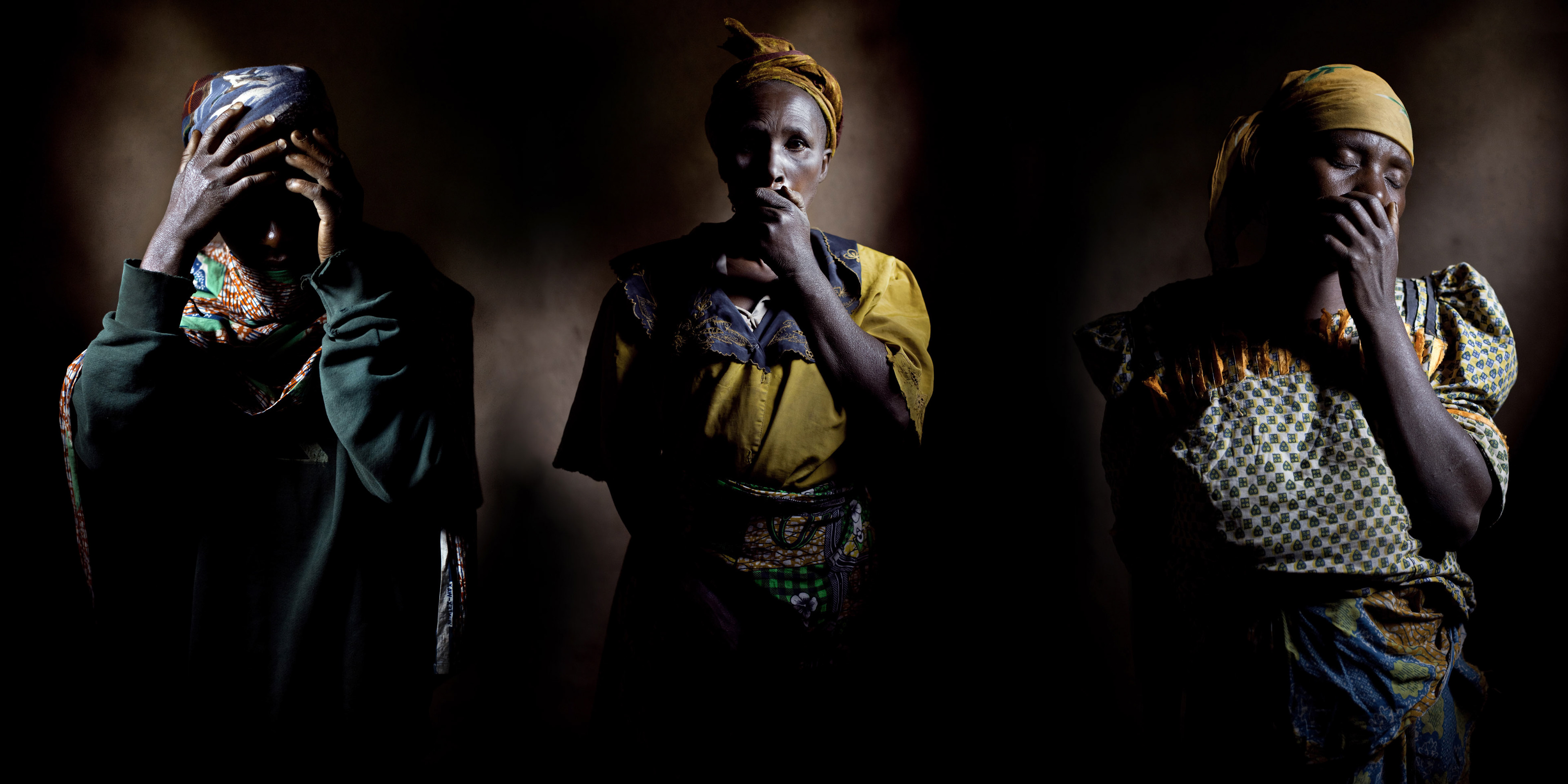
Kwinanika Ngerina (45 years old) and Abiya Gil (45 years old) and Nakambululo Torina (30 years old) and 9-months pregnant during the facts, were raped by several soldiers of the Democratic Forces for the Liberation of Rwanda (FDLR) while they were going to the fields.
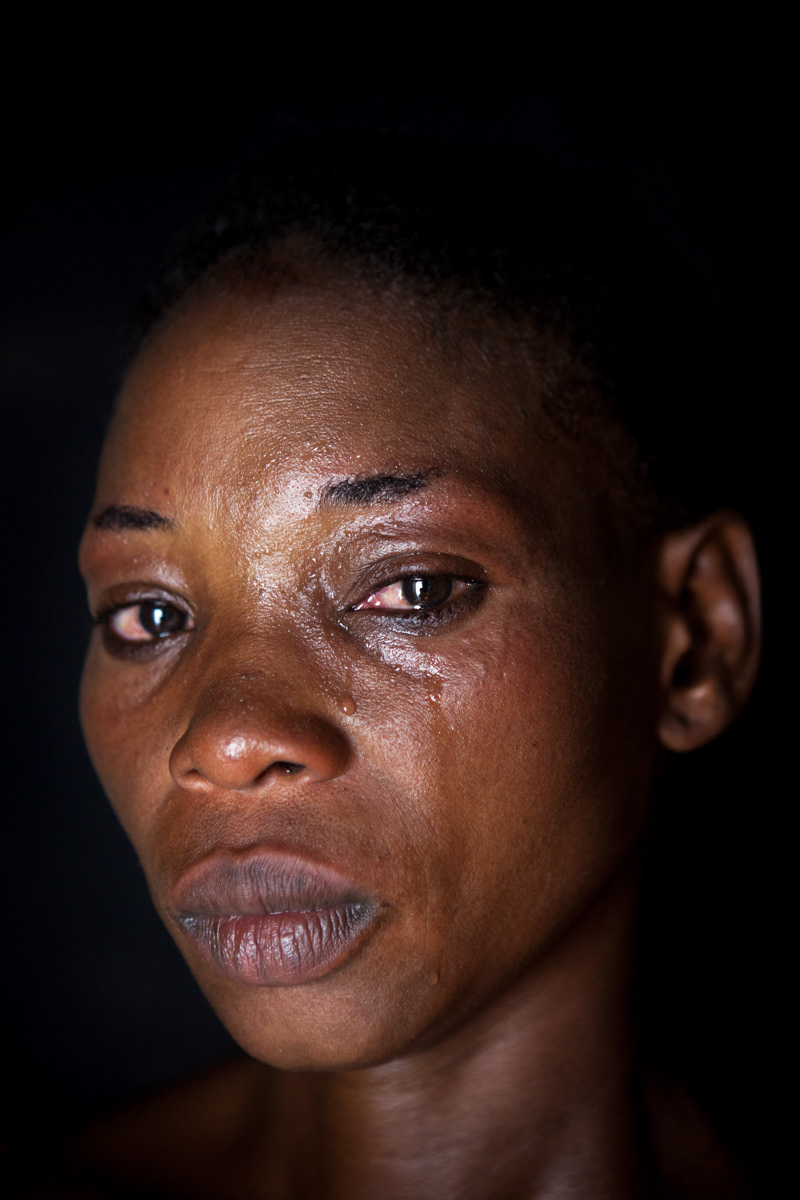
« After all of them had raped me, I went back home. I felt very bad and I was afraid to tell my husband. So I hid my bruised body. Several years later I noticed spots on my body, so I spoke to a doctor. I was diagnosed with AIDS. They warned my husband. They advised him to take care of me. But my husband hated me. He left me. Today I live alone with our children »
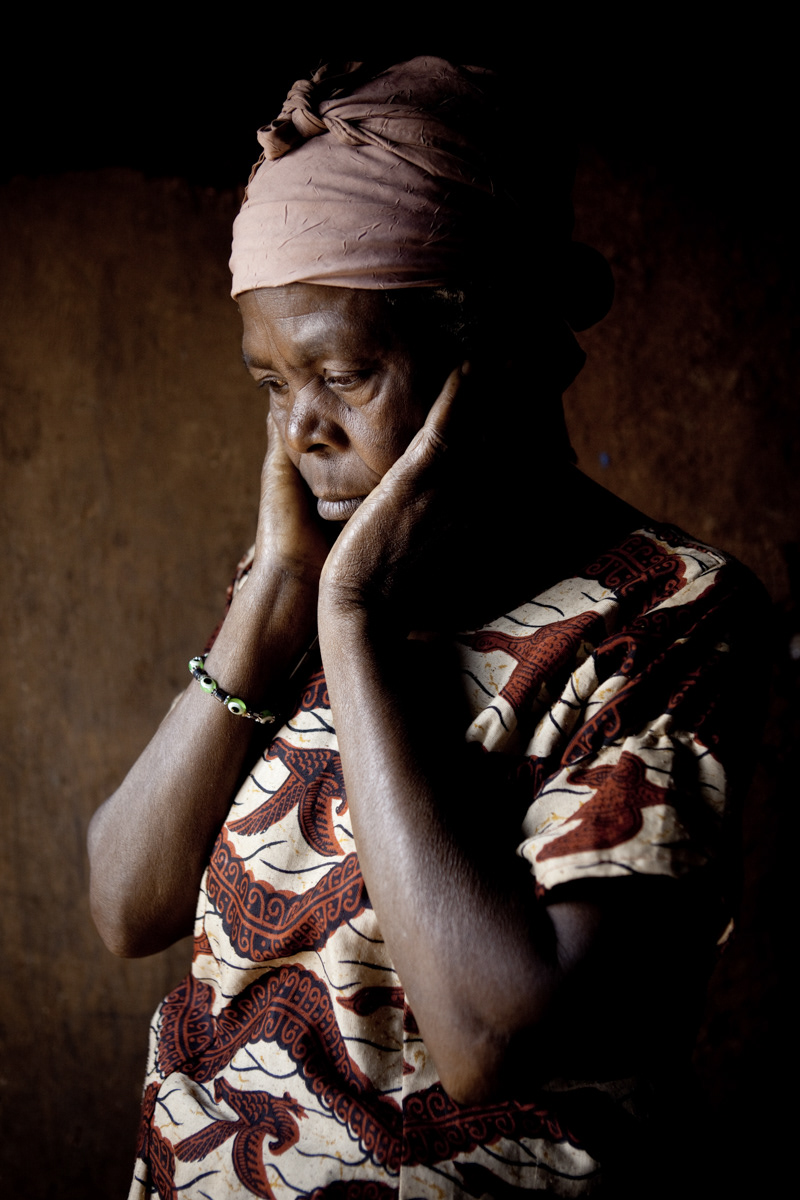
“Armed men came in my village at about 5.00am. They killed my husband and kidnapped me. Four men raped me. When I returned home, my family did not accept me anymore; they were ashamed. So I left with my two children and my brother. We walked through the forest toward Kavumu (South Kivu). We had nothing to eat and to cover us. We suffered a lot. Often, I had to stay in the bed of a river because I had blood flowing from my vagina.”
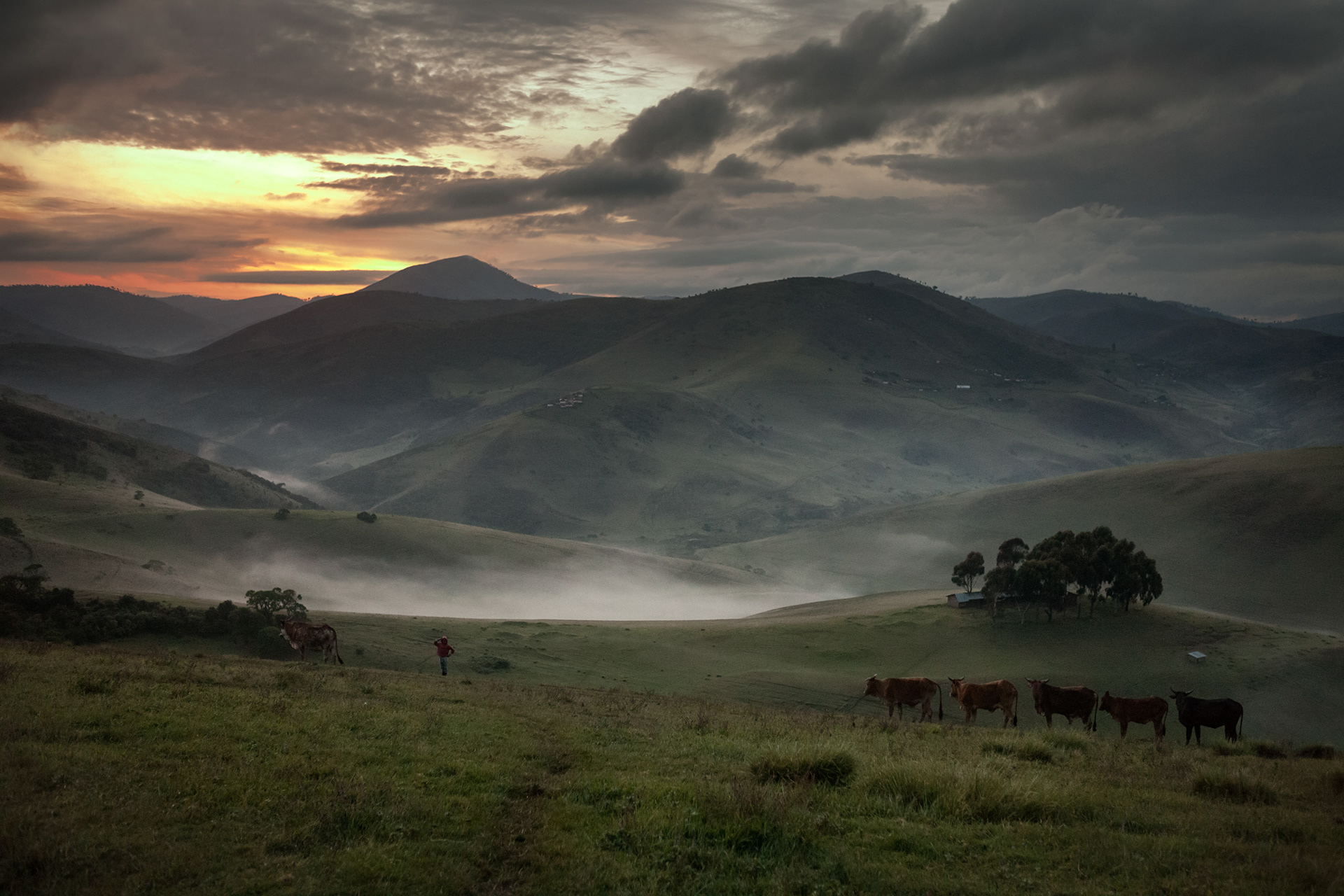
The highland overlooking the lake Tanganyika, in the South Kivu province, seems at first glance a beautiful and quiet haven in the midst of scenic mountains. However, after being the scene of the first fights in 1996, the Highlands of Uvira remain in 2012 one of the most isolated and dangerous region of the Democratic Republic of the Congo.
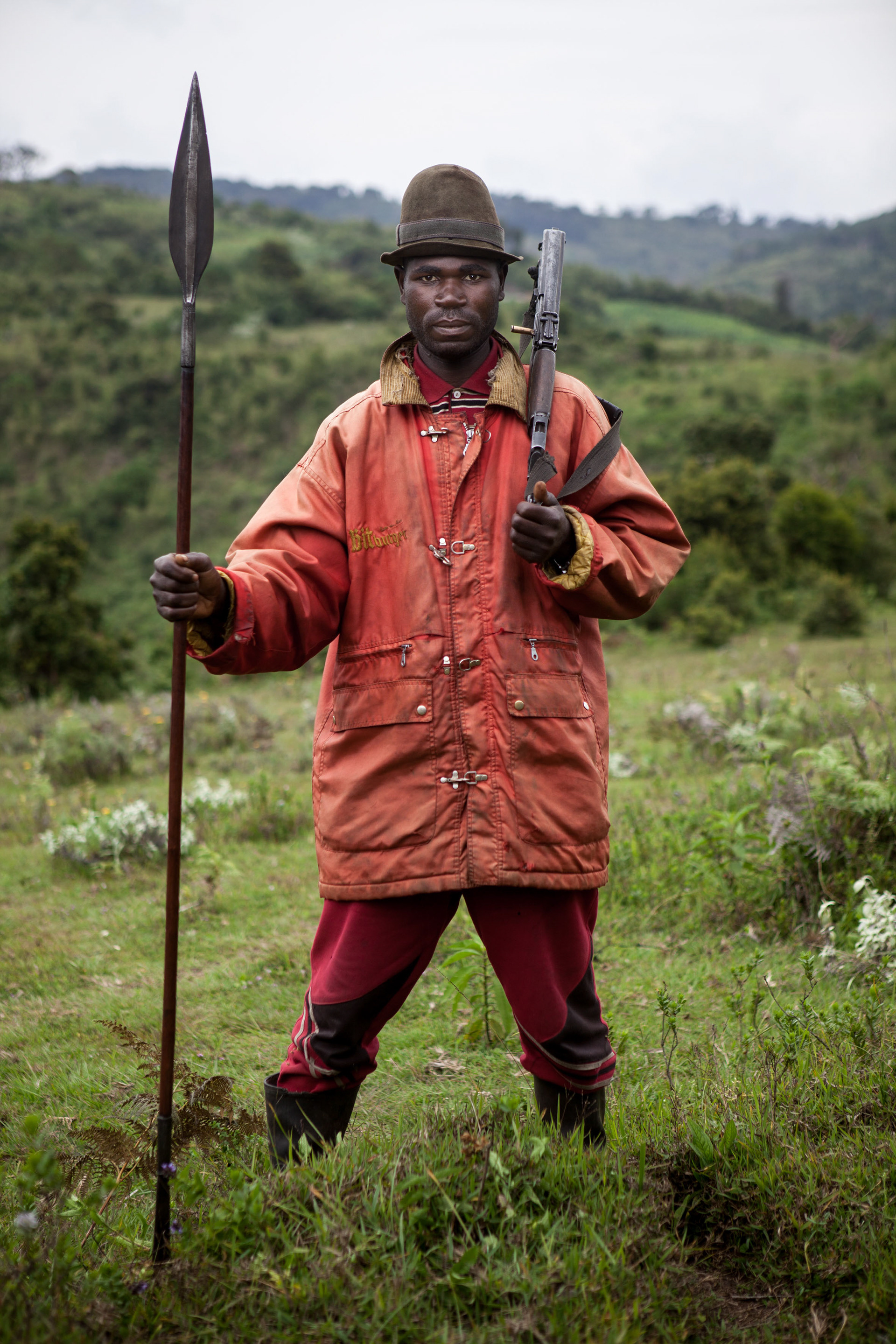
A Maï-Maï Rai Mutomboki poses near Chanzovu, South Kivu, on February 11th, 2012. Many local militias were created to address the insecurity in this border region of the Congo. As the FDLR and the FARDC, these armed men often engage in rape.
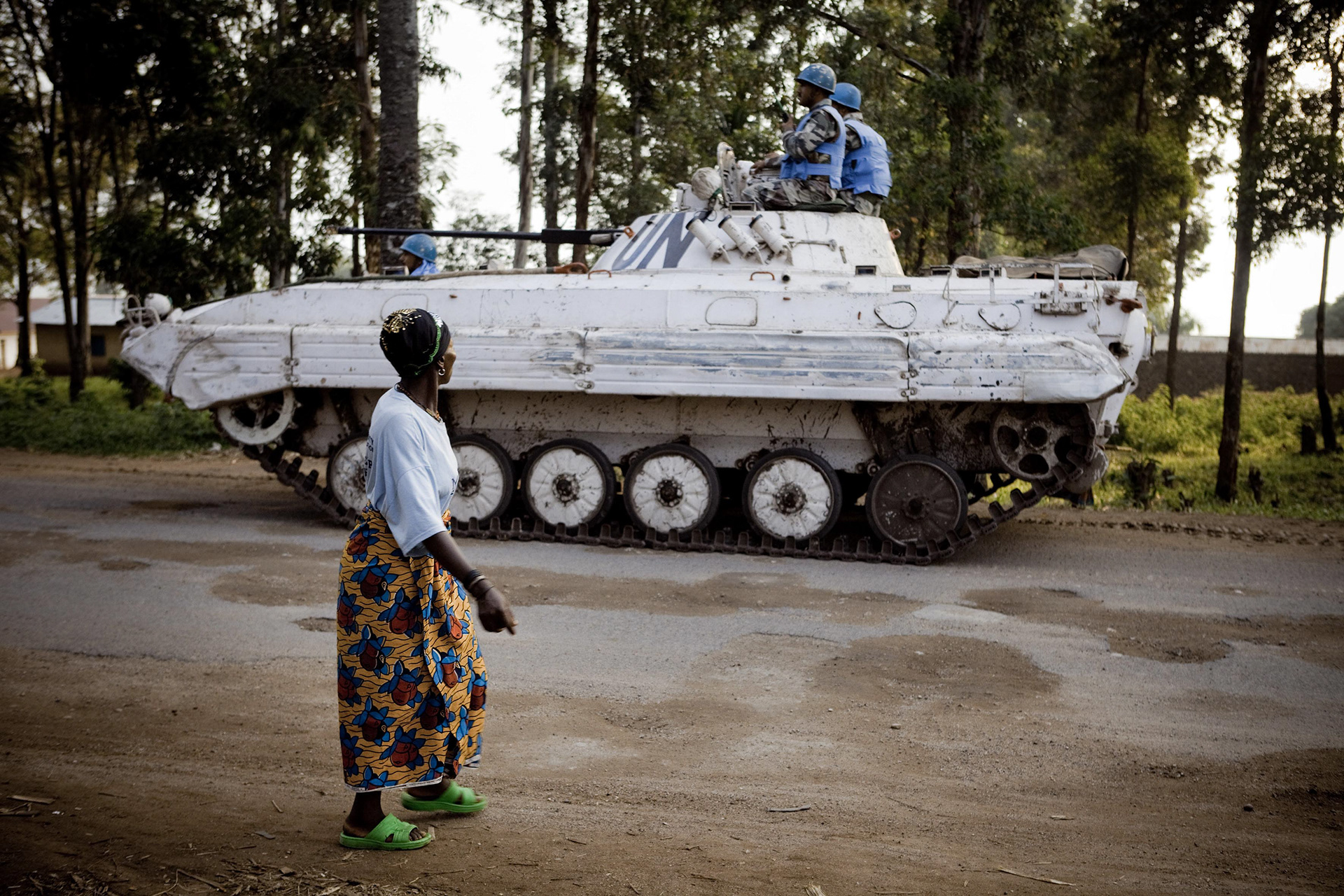
UN peacekeeper patrol near Uvira, South Kivu, on June 7th, 2010. The United Nations Mission in DRCongo is the largest peackeeping mission in the world. It nevertheless remains largely powerless.
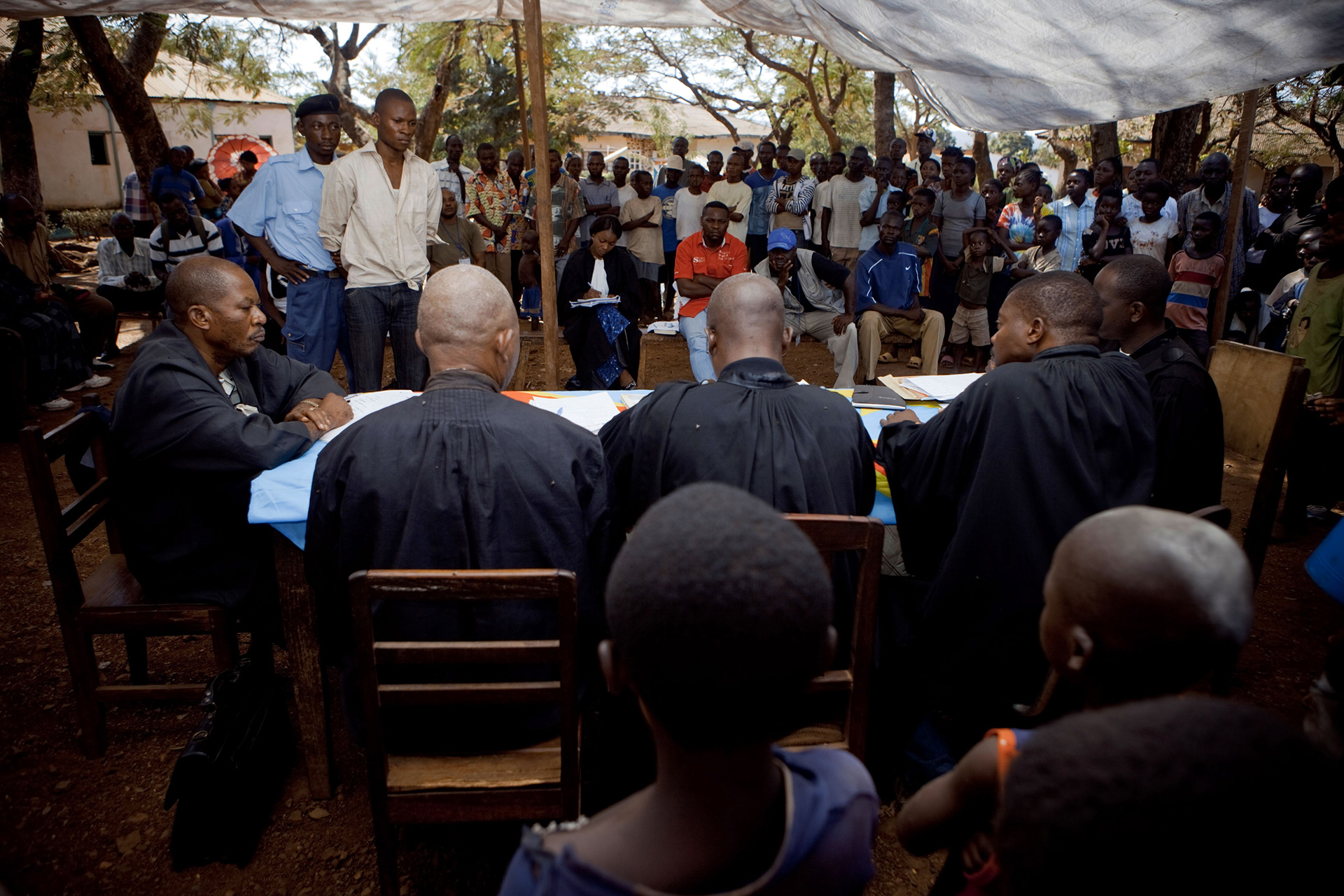
An itinerant court Irango, South Kivu province, on May 22nd, 2010. In the remote jurisdictions, where the traditional justice very often took the place of the legal justice, the United Nations and the American Bar Association help to move the tribunals to the crime scene.
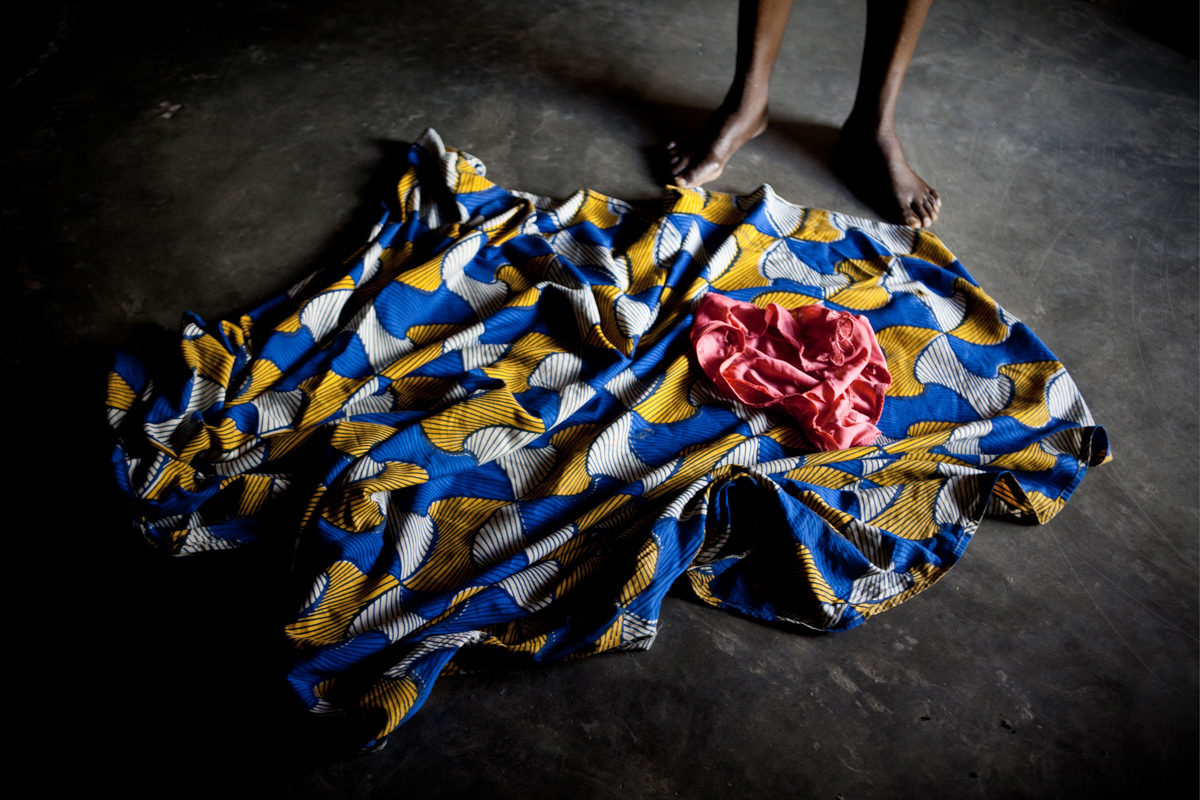
" I keep carefully the clothes which I wore when they raped me, to prove the rape before the courts. But now, I‘ve begun to lose hope. I have already been asked to pay 7000 Fc to press charges, 3000 Fc to type it up and another 50 sheets of paper to print it. I also had to take care of all the medical expenses and on top of that I have to get by and survive in Kamina. The rapists are now free, and the court wants me to pay $20 to collect the judgment and to appeal. I lose heart. "
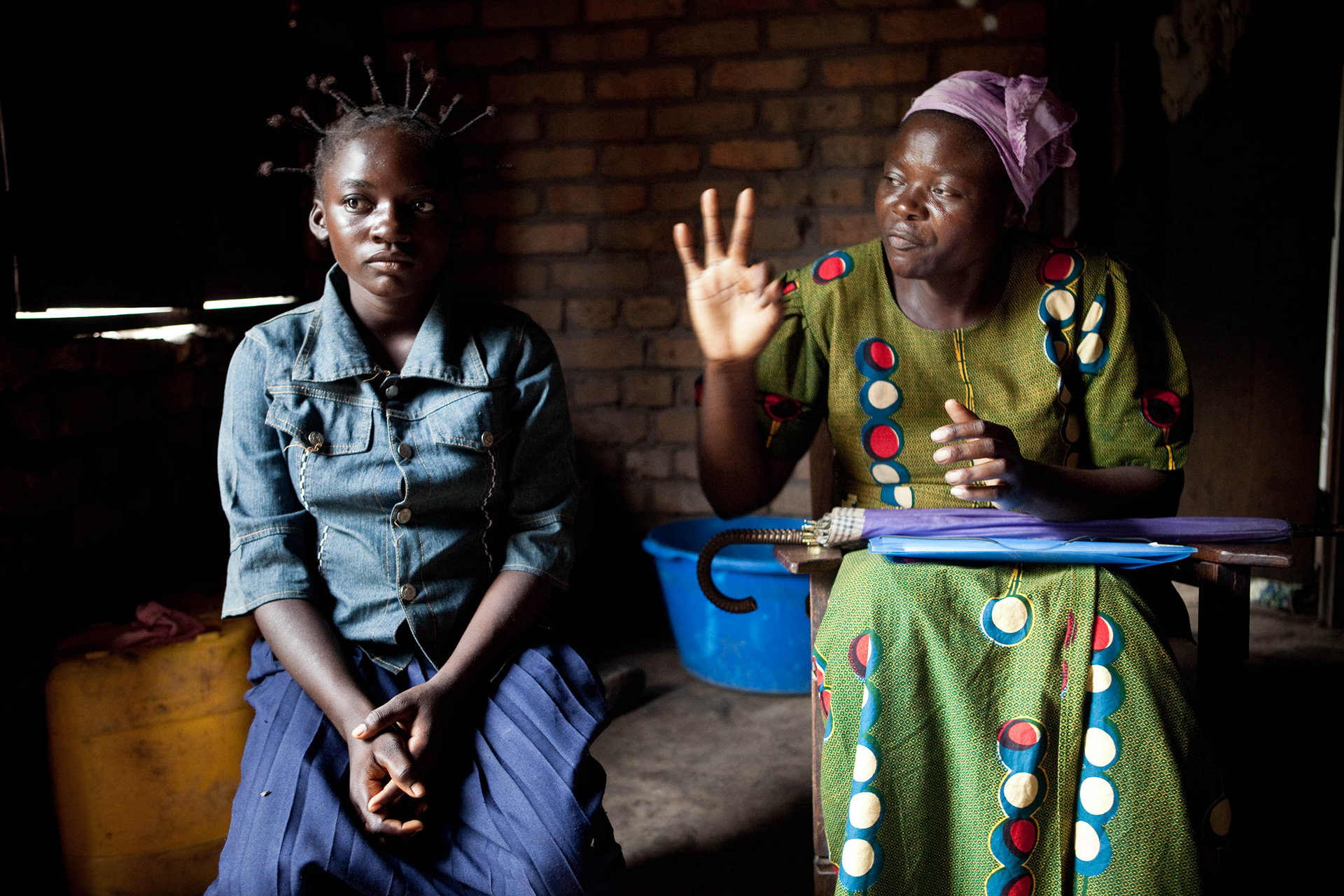
An activist of the association AFPDE (right) is interviewing a 15 years old girl named Kyungu (left). She was repeatedly raped by her neighbour in Uvira, a boy of the same age. "The family of the rapist tried everything to obtain an amicable arrangement. My mother (right) eventually gave in in return for the payment of the maternity costs and the reimbursement of school expenses, as I cannot go to school any more. Now, I have to live with him. I even have to sleep with him... I am ashamed and I am afraid. I am just a child but my parents want him to marry me. They are ashamed to keep a pregnant girl with them."
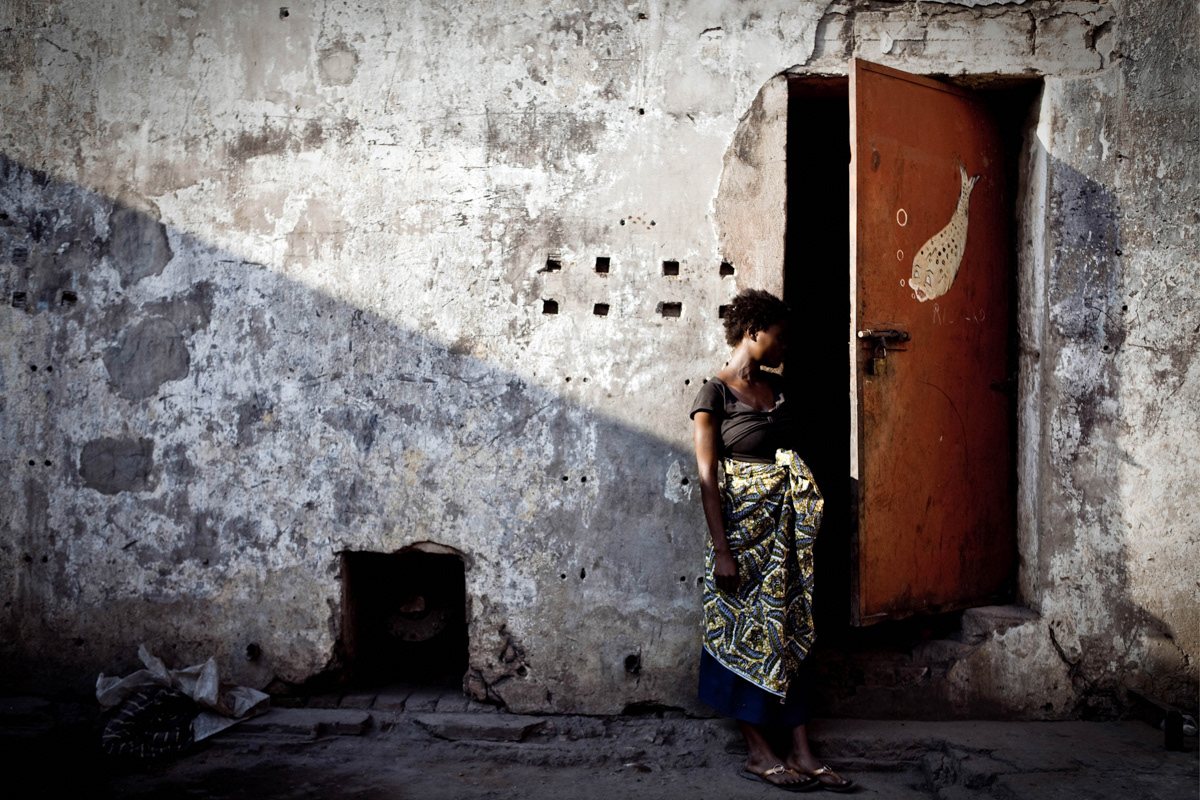
" Before the rape, I was engaged. But the marriage was naturally cancelled. Now, my father has to pay back the dowry. The family of the rapist promised to pay for that, but, until now, they gave nothing. As I became pregnant, the most urgent priority was to release the rapist so that he could take care of the pregnancy. It was not conceivable that he went to prison. But it’s absolutely essential that he marryies me because now nobody will want me anymore. "
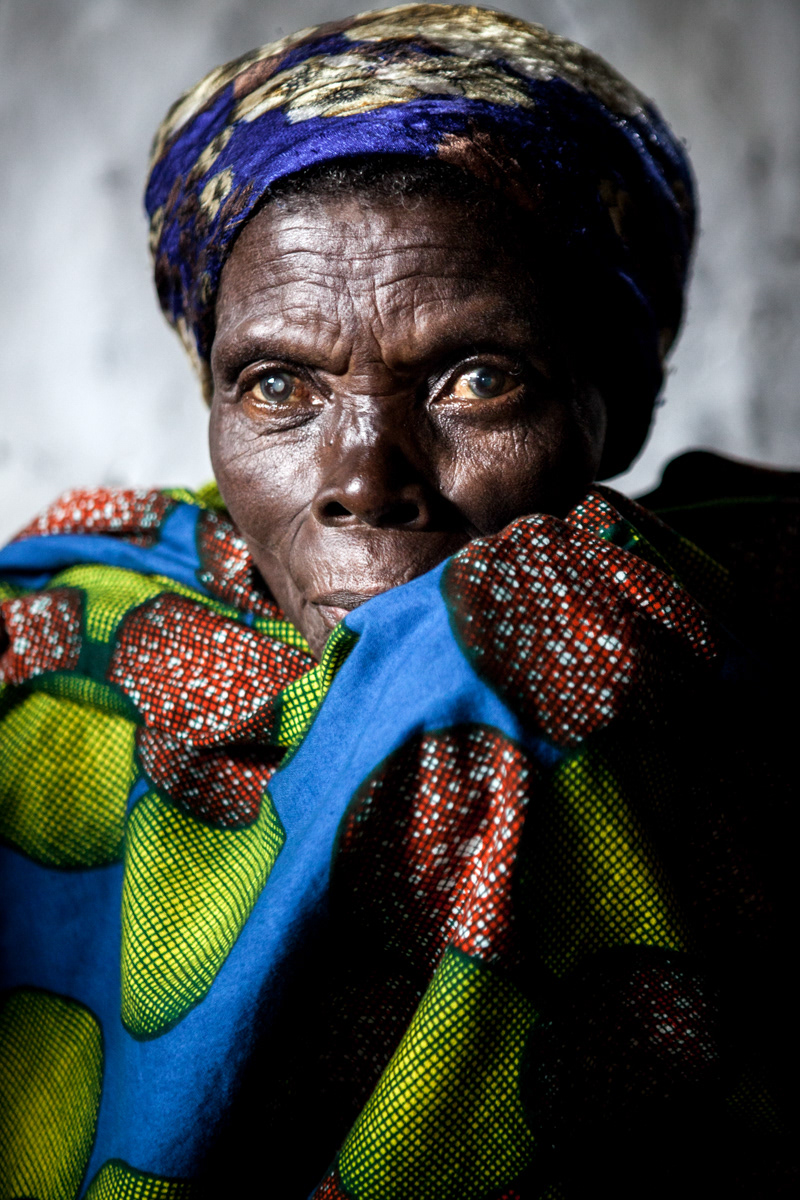
"My husband heard what had happened to me. He told me that he could not bear to live with a woman who had been raped. He told me that he was ashamed and that he could not bear the way other people would look at him … He then threw me out of the house as if suddenly I had become a stranger … Since then, I live alone and without any assistance. I have no means of support, even my children abandoned me."
